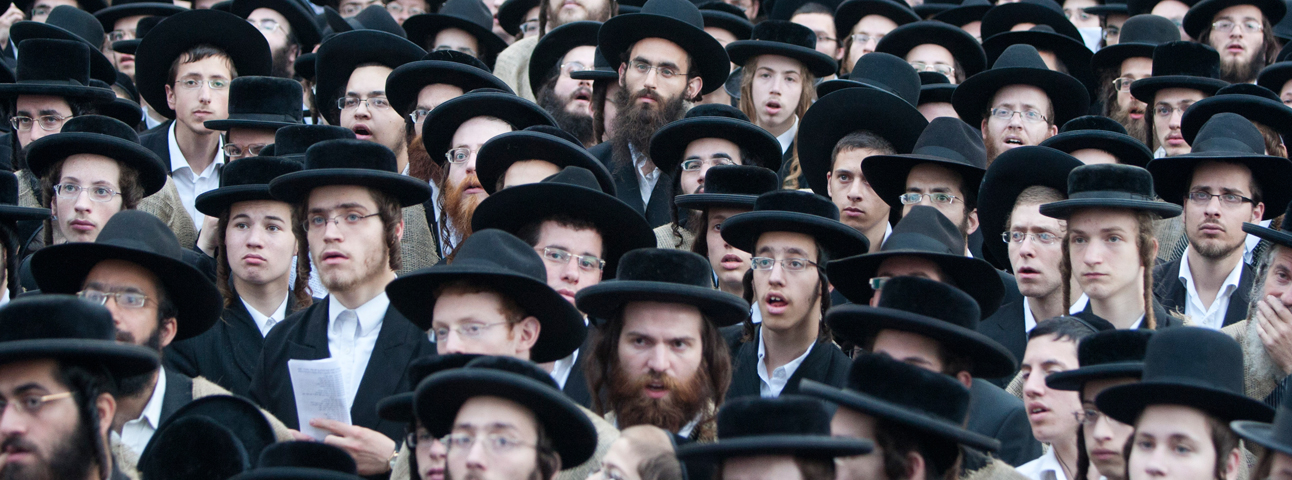There’s a New Player in Haredi Politics: Voters
Is a deep tectonic shift taking place in ultra-Orthodox politics, as Haredi voters are finding their voice?

No sooner had the High Court published its ruling that disqualified Knesset member Aryeh Deri from serving as a minister than the mass pilgrimage to his home on Hakablan Street in Jerusalem got underway. With grave expressions on their faces, the big wheels of Israeli politics showed up one after another to encourage the hero of the hour. The Shas party’s Council of Torah Scholars went so far as to publish a statement expressing its utter shock at the ruling, in which it referred to Deri as the “Creator’s Emissary on Earth.” The ultra-Orthodox world’s customary designation for politicians is “the rabbis’ emissaries”; but now Deri was elevated to the highest rung of all.
Deri’s striking promotion on the scale of spiritual ranks and his recognition as God’s representative on earth fits in perfectly with the general trend we have been seeing recently. For a number of years, the posters and ads that urge electoral support of the ultra-Orthodox parties quote the verse from Deuteronomy, “you shall do … according to all that they instruct you.” In the classic interpretation, this refers to the Great Rabbinical Court that sat in the Temple in Jerusalem; but the ultra-Orthodox have extended it to refer to all directives that originate with the rabbis, especially when they relate to politics. In the last election, the ultra-Orthodox copywriters outdid themselves and actually coined a new religious concept: they produced giant posters featuring a picture of Rabbi Edelstein, the leader of the Lithuanian sector, alongside the verse fragment “you shall heed him.” All agree that in its original context, it meant complying with the words of a prophet; but the ad-men’s new Torah equates the rabbi’s instructions with a prophetic directive and, implicitly, with a divine mandate.
The inflation of titles and these directives is no accident. About two months ago, there was a small earthquake in ultra-Orthodox politics, so minor that it registered on only the most sensitive seismographs. Were it not for the secondary tremor last week, it would be easy to totally miss a deep tectonic shift that took place in ultra-Orthodox politics.
About two months ago there was a modest gathering in Beit Shemesh of young supporters of the Agudat Yisrael party attended by the incoming housing minister, Yitzhak Goldknopf, and MK Ya’akovTessler. The two men promised to listen to the voices of young adults and those who have joined the workforce and to stay in regular contact with them throughout the Knesset’s term. Last week MK Yitzhak Pindross of United Torah Judaism released a video on the last word in Haredi social networks – WhatsApp – in which he invited the public to keep in touch with him and published his direct WhatsApp number.
The great innovation here is not the public appeal to a group that is more modern and the attempt to draw it back into the party. Nor is it the open use by an ultra-Orthodox Knesset member of the internet earth-shattering, though only a few years ago Web surfing was the target of an all-out war, and even today is “frowned upon” at best. The historical breakthrough lies is the arrival of a new power center that must be provided with regular reports – the public at large.
Some readers are very familiar with this concept; they call it “representative democracy” and take it for granted. But the ultra-Orthodox are brought up on a different set of values. Perhaps the best expression of the ultra-Orthodox political doctrine was made by MK Litzman a few years ago, when he told an interviewer that, quite simply, the ultra-Orthodox don’t have a right to vote, they have an obligation to vote. For them, politics is an arena for achieving the supreme goal, a full religious life (as per orthodox Jewish standards). Their politicians are subject to the religious leaders, who tell them how to act and what to do in order to enable a full religious life. In this picture the public is not a main speaker, or even a factor with equal weight in decision-making; it is more like a child whom the parents (the rabbis) have entrusted to the care of the kindergarten teacher (the politicians) whose job is to implement the best policy for the child.
Max Weber, one of the fathers of modern sociology, defined several types of leadership. One of them is traditional leadership, which, as its name indicates, derives its power and authority from the glorious past and tradition; the public obeys such leaders because they faithfully express its lifestyle and traditions. Another leadership model is the charismatic. Charismatic leaders draw their power from the public trust invested in them personally, as a result of an attribute that is elusive and hard to define but readily evident when encountered – charisma. The third category consists of the administrators, who draw their power from the role they occupy in the bureaucracy of the modern state.
Until now, the classic political leaders of the ultra-Orthodox sector have clearly belonged to the first category, traditional leaders. Communication with the public, which is now beginning with a focus on the more modern sector but will eventually incorporate concepts and forms of dialogue that can influence the mainstream as well, represents a radical change in the structure of the classic leadership. In addition to the traditional model, something closer to the administrative pattern is beginning to emerge.
Tectonic shifts take place slowly and are almost not felt. But they totally change the landscape and redraw geographic and sociological boundaries. The same is true of the movement towards democratization of the ultra-Orthodox leadership. Only time will reveal its full scope and meaning, but its first fissures are already visible today.
The article was published in the Times of Israel.
